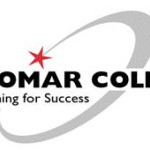- Industria: Education
- Number of terms: 12355
- Number of blossaries: 0
- Company Profile:
Founded in 1946, Palomar College is a public two-year community college in the city of San Marcos, located in north San Diego County, California. Palomar offers over 300 associate degree, certificate programs and is designated by the U.S. Department of Education as an Hispanic-Serving Institution ...
A genetic pattern in which an individual has two distinct cell groupings--one with normal cells and another with a genetic problem. For instance, some people with Down syndrome produce both normal somatic cells and cells with an extra.
Industry:Anthropology
A large organic molecule that stores the genetic code for the synthesis of proteins. Each chromosome consists mostly of a DNA molecule. DNA is composed of sugars, phosphates and bases arranged in a double helix shaped molecular structure. Segments of DNA correspond to specific genes.
Industry:Anthropology
A genetic trait controlled by more than one allele, each of which has a frequency of 1% or greater in the population gene pool. See balanced polymorphism.
Industry:Anthropology
A set of medical procedures to help a couple have children if they have not been able to in the past due to low sperm count, blocked fallopian tubes, and some other causes of infertility. The woman is given fertility inducing drugs to cause her to ovulate numerous ova which are surgically removed and fertilized outside of her body with sperm from her mate or another donor. Two or more of the fertilized ova are then placed into her uterus in the hope that one or more will attach and develop into viable embryos. As a result, multiple births are relatively common with IVF.
Industry:Anthropology
A genetically inherited sex chromosome abnormality only affecting females. Metafemales inherit three X chromosomes--their genotype is XXX. As adults, these individuals are usually an inch or so taller than average with unusually long legs and slender torsos. They have normal development of sexual characteristics and are fertile. They may have slight learning difficulties and are usually in the low range of normal intelligence. They tend to be emotionally immature for their size during childhood. None of these traits prevent them from being socially accepted as ordinary women. This type of chromosomal abnormality is apparently rare and little is known about it. However, the frequency is approximately 1 in 1,000 female infants and it may be more common when the mother is older. Metafemales are also called "triple-X females. "
Industry:Anthropology
A "fertilized" ovum. More precisely, this is a cell that is formed when a sperm and an ovum combine their chromosomes at conception. A zygote contains the full complement of chromosomes (in humans 46) and has the potential of developing into an entire organism.
Industry:Anthropology
A genetically inherited form of mental retardation usually resulting from the inheritance of an extra autosome 21. Down syndrome individuals also typically are short and stocky in build with short appendages. They usually have broad round faces, saddle-shaped nose profiles, and thick tongues that are often stuck out of their mouths. The incidence of Down syndrome children goes up rapidly with the age of the mother, particularly after 40.
Industry:Anthropology
A kind of hard, rock with a glassy opaque appearance. It was a favorite raw material for many prehistoric humans for the manufacture of tools such as knives and scraping implements.
Industry:Anthropology
A radiometric dating method based on the fact that potassium-40 in volcanic rock decays into argon-40 and calcium-40 at a known rate. The half-life of potassium-40 is approximately 1. 3 billion years. Chronometric dates are determined by measuring the amount of argon-40 in a sample. Similarly, argon-40 and argon-39 ratios can be used for chronometric dating.
Industry:Anthropology
A hypothesis to explain the origin of modern Homo sapiens. It proposes that the first modern humans evolved in Africa, but when they migrated into other regions they did not simply replace existing human populations. Rather, they interbred to a limited degree with late archaic humans resulting in hybrid populations.
Industry:Anthropology
